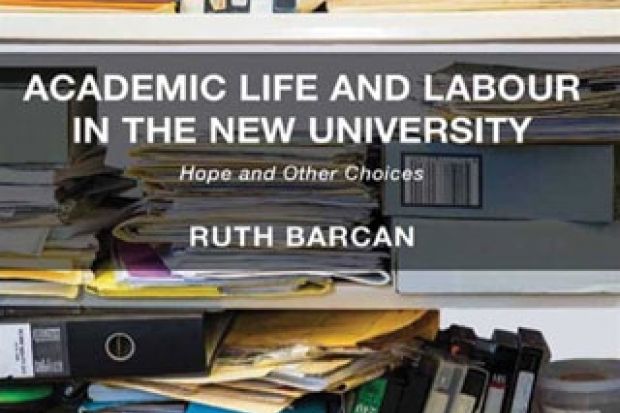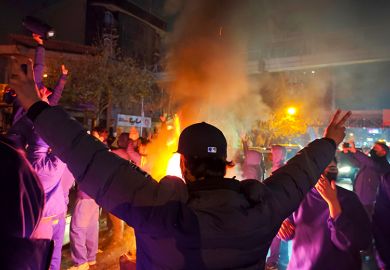Ruth Barcan is plainly an academic with guts. Showing an honesty and resolution not often to be found in the profession at the present time – despite all the rumbling discontent everywhere audible on campuses – she has set herself to report on the moral health and intellectual fitness of our home institution.
She is helped in this by the intrinsically Australian candour and straightness readily to be breathed in her parent university of Sydney, and much more muttered and muffled here in England. Perhaps there is something a bit plodding about the prose in which she sweats out her argument – all those heavy-duty phrases of contemporary argufying, “foregrounding”, “critiquing”, “trialling”, “resonate”, “recuperate” – but she tells her big truths and shames the malignant devils of management and market.
Above all, she insists on tying tightly together “private feelings and public contexts”, attending carefully to the inevitable advent of the corporate and bureaucratic university and the institutional halitosis it causes in the nicest of departmental heads, let alone vice-chancellors. In this analysis she is decently careful to name and feel for the duplicity we all of us have to live in and with if everyday academic life is to continue at all. She recalls and arraigns the horrible origins of these tendencies in Keith Joseph’s ignorant anti-Keynesianism of the early 1980s, but presents with discomposing clarity the dissolution of the idea of the university as state sentinel watching over high achievement and egalitarian progress.
Her admirable innovation in presenting this not unfamiliar diagnosis is to ask, what of the well-being of academics and their feelings about themselves in all this transformation? In this she may at times be a bit too close to the language and ethics of the therapeutic counsellor, but nonetheless she makes the singular effort to recognise the present deep predicament of the scholar, in particular those Ezra Pound once called “the damned and despised literati”.
Her particular literati are, however, the urban guerrillas of cultural studies, and it has become the acknowledged attribute of its sometimes raffish membership that it cherishes the hypnagogic illusion that “theory” answers all intellectual purposes. Barcan struggles with this quite undifferentiated monster before, winningly, allowing her own natural cheerfulness to carry the day for her title and for what Clifford Geertz saw as “the moral obligation to hope”.
The trouble with cultural studies – the more so as it has abandoned the lead of its late and great originator Richard Hoggart, amazingly left unmentioned by Barcan – is that it has no received body of knowledge, no sacred texts (not even Hoggart’s The Uses of Literacy it seems), no structure of rationality nor undisputed achievements; all of which, as she nonetheless realises, it is the duty of academic education to provide for the student.
So Barcan’s excellent purpose falters a little, and her eager pages on the physical embodiments of study ring oddly in the company of her worthy Left-liberalism. But my word, I’m glad to see her.
Academic Life and Labour in the New University: Hope and Other Choices
By Ruth Barcan
Ashgate, 258pp, £65.00
ISBN 9781409436218 and 9781409436225 (e-book)
Published 18 December 2013
Register to continue
Why register?
- Registration is free and only takes a moment
- Once registered, you can read 3 articles a month
- Sign up for our newsletter
Subscribe
Or subscribe for unlimited access to:
- Unlimited access to news, views, insights & reviews
- Digital editions
- Digital access to THE’s university and college rankings analysis
Already registered or a current subscriber?





